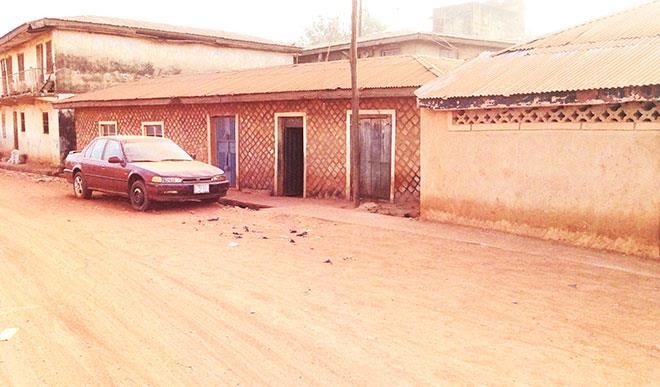Dust settles on Jos community, unsettles residents
The construction of roads in Anguwan Garba Daho, Gangare, and Yan Doya communities in Jos has since stopped, causing sickness among the people as they inhale dust. The breeze that sweeps through Anguwan Garba Daho, through Gangare and Yan Doya in the city centre of Jos, the Plateau State capital, can best be described as […]


The construction of roads in Anguwan Garba Daho, Gangare, and Yan Doya communities in Jos has since stopped, causing sickness among the people as they inhale dust.
The breeze that sweeps through Anguwan Garba Daho, through Gangare and Yan Doya in the city centre of Jos, the Plateau State capital, can best be described as unpleasant and harmful. From the months of October to February when the harmattan season bites hard in Jos, any untarred community such as Garba Daho, with red sand base, suffers. On the one hand is the cold, dry and dusty wind that blows, leaving a residue of red sand on everything it touches, staining white garments, including parked cars and their rooftops which are caked in red dust. On the other hand, it has become almost impossible to stand around the community for up to three minutes without sneezing, coughing or wheezing due to the dust that rises as a result of a moving vehicle or tricycle.
It is this scenario that the residents of Garba Daho say has made life almost unbearable for them. The road, until a contract was awarded by the immediate past Governor Jonah David Jang administration, had been untarred. But residents lament it was better off than what is presently obtainable. As part of the project, a construction of the base layer which involves laying sand was done in the entire area. However, after the sand was laid, the construction work had abruptly stopped. Many attest the halt of the project to the inability of the then government to pay contractors as a result of the dwindling price of crude oil in the international market.
WAKEMA Construction Company, which was awarded the contract over two years ago had tarred nearby roads of Ayeni Street, but had folded up its equipments and left the area in September 2014 without tarring Garba Daho. For the residents of the community, the dust is not only detrimental to their health but poses a threat to their evening discussions on the veranda of their houses.
Malam Abdullahi Musa while standing by the community mosque said “this breeze is harmful. It attacks us while walking and even when sitting outside on the veranda. Because of the breeze, we are no longer able to sit outside especially in the evenings to have discussions. We no longer want to wear white clothes for fear that it may get stained and we have to dust the mosque carpets after every two days. During the rainy season the entire area is muddy and unpleasant, while it is dusty during harmattan.”
Hasia Sagiru, a 38-year-old mother of seven says, by spreading sand all over the community, the construction company had made things more complicated, including her house chores. Two years ago, she swept the inner surroundings of her home once a day, but now has to contend with sweeping two to three times a day to keep the red sand away. Washed clothes are often dusted from the spreads to remove sand particles. “It is worse when white garments are washed as the red sand often stains them. The water we fetch from the well is sometimes covered in the sand and we no longer wash and dry are cooking utensils in the compound, instead we have to move them into the room or else they will be stained,” Hasia explained.
Another resident, Mohammed Ibrahim Miga, revealed that his infant daughter was admitted to the hospital as a result of the dust and was diagnosed with pneumonia. “When they asked where we lived and we told them, the doctor said it was the reason for her illness. That is why we are appealing to the government to please come to our aid and complete the construction. We know the governor is trying but we will be grateful if he can ask the contractor to return to site and complete the work.”
Our correspondent observed that cars in the area are washed almost on a daily basis. Tricycle users and other motorists are also often the subject of irritation as some residents blame them for raising the dust which led the youths in the area to threaten to block access points into the community. “We were able to avoid such a scenario. They wanted to block the roads leading towards Rikkos, Yan Doya and Dilimi so that cars will stop plying the area because they believe that vehicular movements have contributed to raising the dust,” said Bashiru Sani Adamu, a youth leader in the community.
Adamu explained that “For some it is asthma, others, pneumonia and other health challenges, all as a result of the red sand. We urged the youths to be patient because we have sent a delegation to the government to look into our plight and we are hoping that something concrete will be done about it soon.”
